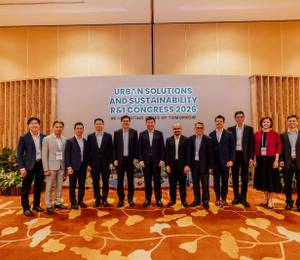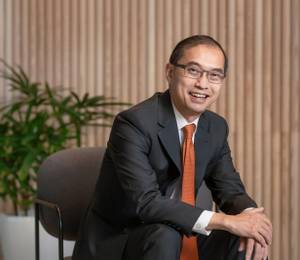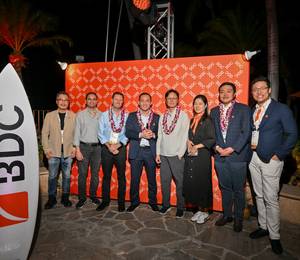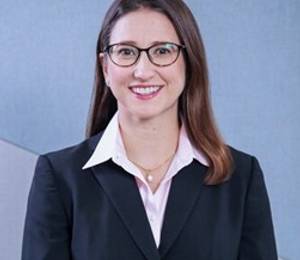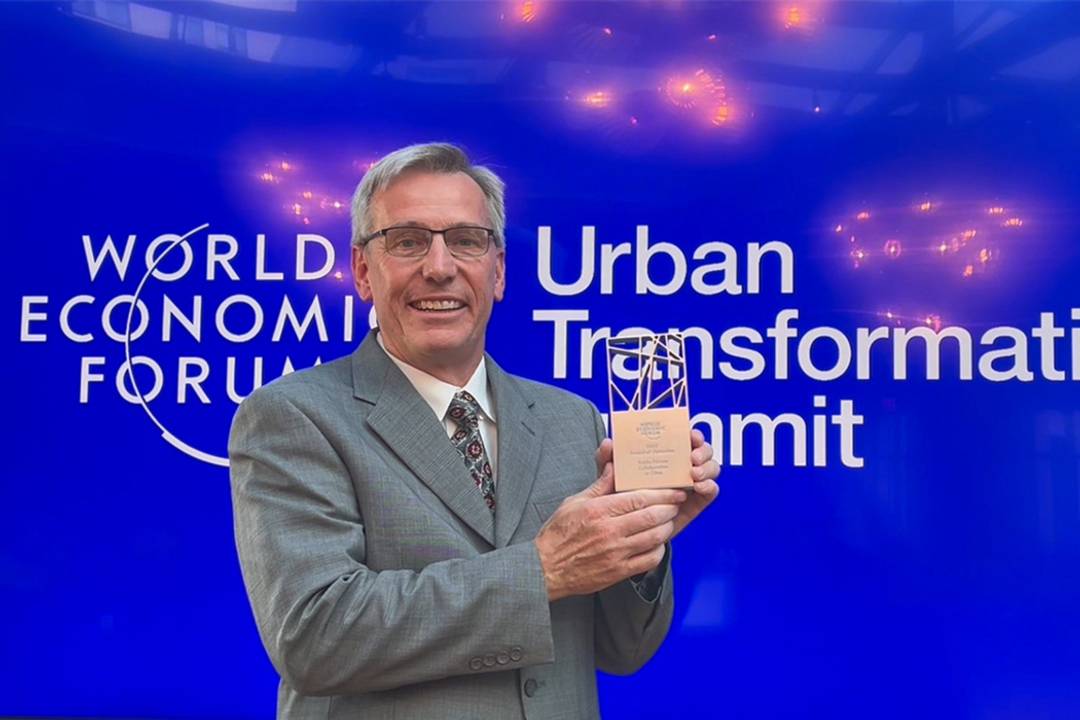Nordborg, Denmark – The World Economic Forum’s Centre for Urban Transformation and UN-Habitat has honoured ProjectZero with its Award of Distinction for Public-Private Collaboration in Cities in recognition of the positive and measurable impact demonstrated in the city of Sønderborg in southern Denmark.
The award ceremony took place on 10 October 2023 in Detroit, Michigan, USA, as part of the World Economic Forum’s Urban Transformation Summit which brings together visionary leaders from business, government, civil society, media, and philanthropy to forge new partnerships, showcase innovative solutions and mobilize action in support of more sustainable and inclusive cities and urban economies.
ProjectZero was established as a public-private partnership in 2007 with a vision of turning Sønderborg Municipality’s energy system carbon neutral by 2029. The project was initiated by the Bitten & Mads Clausen Foundation, the majority shareholder in Danfoss, Sønderborg Municipality, the University of Southern Denmark, and several local companies, as well as other public and private organizations. Danfoss contributes to ProjectZero by supplying energy efficient cooling and heating solutions, collaborating on electrification projects, and promoting sector integration where industry, energy production, transport, and others work together to reuse energy which has already been produced.
Last month, ProjectZero announced that energy-related carbon emissions have been reduced by 57 percent, equivalent to a saving of around 400,000 tons of CO2. ProjectZero was recognized as a true example of the benefits of the public and private sector coming together.
“ProjectZero provides a model for how the public and private sector can come together to deliver on big, bold ambitions which might otherwise not be possible,” said Jeff Merritt, Head of the World Economic Forum’s Centre for Urban Transformation. “By recognizing this world-leading effort, we hope to encourage and inspire other cities to follow suit, forging new partnerships to accelerate climate action.”
Rick Sporrer, President of the North America Region, Danfoss, accepted the award on behalf of ProjectZero. He said: “ProjectZero is a clear example of what a city can achieve in the way of emissions reductions when public and private organizations team up to find local solutions to a global problem. Cities account for more than 70 percent of annual global carbon emissions and it’s crucial that we learn from each other. A public-private partnership like ProjectZero is replicable, adaptable and scalable for other cities around the world and can help us achieve our global climate goals.”
The ProjectZero model focuses on creating and demonstrating an intelligent and integrated energy system across an entire municipality, offering energy savings. ProjectZero is one of the main reasons that Dr Faith Birol, Director of the IEA, named Sønderborg “the global capital of energy efficiency” at last year’s IEA conference on energy efficiency.
The various sources of energy and sectors connect in a flexible network that works coherently, allowing, for example, houses to be heated by surplus heat from local companies, electric cars can be charged when there is less pressure on energy consumption, and data is used to ensure that energy is efficiently utilized in the best possible way. This model makes it possible to reduce the costs of decarbonization by up to 50 percent.
In response to ProjectZero receiving the award, Brian Seeberg, CEO, ProjectZero, said: “The strong commitment and collaboration in our partnership is the very backbone of ProjectZero, and the key to reaching zero in 2029. I am therefore very pleased that this award recognizes this unique partnership. Cities around the world can turn to Sønderborg as a blueprint for how to reduce their own emissions. We’ve shown it is possible to make an impact by focusing on three key principles: energy efficiency, sector integration and green energy sources. This is something all cities around the world can and should do.”


